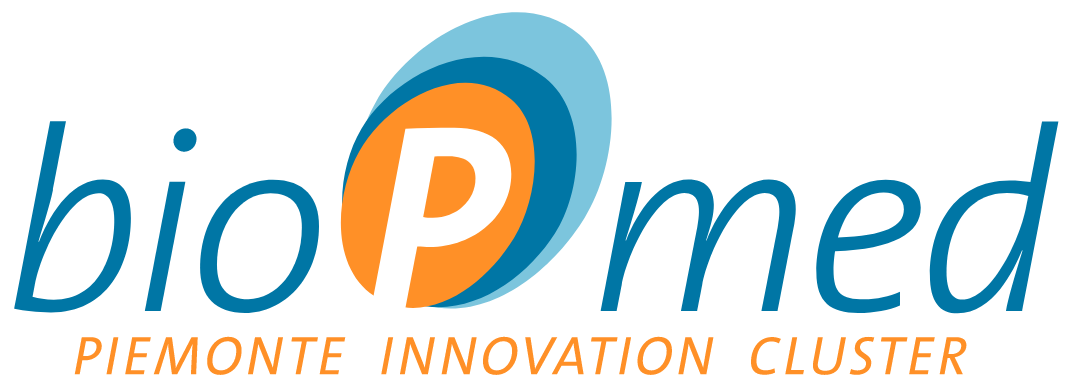Details
Project title: Innovative diagnostic and therapeutic approaches to autoimmunity.
Acronym: IDaTA
Coordinator:: Santo Landolfo-NoToPharm S.r.l
TP/LS membership: CMDI/HMNA1
Subjects involved: NotoPharm, University of Turin, University of Eastern Piedmont
Status: Completed
Abstract: This research project, carried out as a collaboration between NoToPharm s.r.l and the laboratories of the Department of Public Health and Microbiology of the University of Turin and the Department of Clinical and Experimental Medicine of the University of Eastern Piedmont “A. Avogadro”, was focused on the analysis of the role of the protein Interferon-inducible IFI16 as a potential biomarker in autoimmune diseases, through in vitro analysis of human endothelial cells and in vivo studies on the sera of patients suffering from autoimmune diseases.
Contact for further information:
Name: Sandro Landolfo
Organization: NoToPharm S.r.l.
Address: Via Ribes 5 -10010-Colleretto Giacosa (TO)
Phone: 011.8028437
E-mail: giuseppe.caputo@pianeta.eu
Web: www.pianeta.eu
THE PROBLEM ADDRESSED
Numerous studies have highlighted the critical role played by Interferons in the pathogenesis of autoimmune diseases. IFI16 is an interferon-inducible nuclear phosphoprotein, mainly expressed in endothelial cells (EC), keratinocytes, hematopoietic cells and immune system cells. Several pro-inflammatory stimuli, such as oxidative stress (H2O2), UV-B irradiation and infection with human cytomegalovirus (HCMV), can stimulate the expression of IFI16 and induce its relocation from the nucleus to the cytoplasm.
Several studies have shown the presence of anti-IFI16 antibodies in the serum of patients suffering from autoimmune diseases, such as Systemic Lupus Erythematosus (LES), Systemic Cutaneous Scleroderma (SSc) and Sjogren’s Syndrome (SjS). Therefore, on the basis of these premises, this research project has been directed to clarify the molecular mechanisms underlying the autoimmune process involving IFI16 and the development of methods aimed at identifying new markers, such as IFI16, to improve the diagnosis and prognosis of autoimmune diseases.
THE ACTIVITIES CARRIED OUT
The objectives set and the activities carried out, articulated in the different units, can be summarized as follows:
- Validation of the physiopathological significance of anti-IFI16 antibodies in different autoimmune diseases;
- Preparation of an ELISA method for the determination of the levels of the circulating IFI16 protein;
- Evaluation of the distribution and clinical correlations of elevatititers of anti-IFI16 and circulating IFI16 in systemic autoimmune diseases and the practical application of these parameters in the diagnostic/prognostic classification of various subsetds of these diseases
- Analysis of the effect of extracellular protein IFI16 on the biological activity of endothelial cells and keratinocytes;
- Evaluation of the ability of several antibodies to interfere with protein activity to detect
potential neutralising antibodies; - Identification of receptor and signal transduction pathways regulated by IFI16, which can potentially lead to activation of nuclear transcription factors, so a key role in the development of inflammation and progression of the autoimmune process is known.
RESULTS ACHIEVED AND EXPLOITATION OF THE RESULTS
The analysis of serums of patients with autoimmune diseases found that anti-IFI16 autoantibodies are present in 52% of patients with SLE, 29% in those with SSC and 6% of healthy controls. Overexpression and relocation of IFI16 following pro-inflammatory stimuli could cause its release into the extracellular environment and the subsequent induction of autoantibodies.
Therefore, the first part of the work involved the improvement of a method, developed by NoToPharm, for the qualitative and quantitative determination of the IFI16 protein in extracellular form. The method consists of a sandwich ELISA (which uses commercial antibodies), which has been used to assess the presence and level of IFI16 in serum of a cohort of patients suffering from autoimmune diseases.
Following optimization of reagents and analytical protocols, a large cohort of autoimmune patients was analyzed. Subsequently, the analysis of the associations between the presence/ circulating levels of IFI16 and the clinical and laboratory data of patients was performed, through detailed databases necessary for the execution of statistical analysis. The presence of IFI16 in the circulatory system of patients suffering from diseased and autoimmune suggests that the protein could exercise biological functions.
To demonstrate this hypothesis, the effects of IFI16 have been evaluated through functional tests on endothelial cells isolated by umbilical cord (HUVEC), the main target cells of autoimmune diseases.
In the latter part of the project, the ability of several antibodies to interfere with protein activity to detect potential neutralising antibodies was also evaluated.
The results obtained revealed the ability of IFI16 to inhibit the biological functions of the cells considered, supporting the hypothesis of the toxic role played by the protein in vivo. This ability is completely inhibited by the addition of neutralising antibodies.
Finally, experiments of bonding kinetics have been carried out that have led to the discovery of potential membrane receptors capable of binding the protein.
PROJECT NUMBERS
- Other Public Partners: University of Turin, University of Eastern Piedmont “A. Avogadro”
- Total number of partners: 3
- Number of employed researchers (fixed-term and permanent and cocopro) involved: 2
- Duration in Months: 24
- Total budget (at project start): 200.000,00
- NoToPharm: 110.000,00 (approval 30-6-2010)
- University of Turin: 45.000,00
- University of Eastern Piedmont “A. Avogadro”: 45.000,00
- Budget revision request (NoToPharm only): 72.845,00 (18-7-2012)
- Funding after revision budget (only for NoToPharm):36.442,50 (to be approved)
- Total budget (after remodulation): 162.845,00
- NoTopharm: 72.845,00
- University of Turin: 45.000,00
- University of Eastern Piedmont “A. Avogadro”: 45.000,00
- Number of scientific publications: 5
- Number of presentations at conferences and seminars: 3
- Numero brevetti depositati: 2 (deposito in data antecedentel’inizio del progetto IDAtA)
- Number of permanent, fixed-term and cocopro jobs created: 1
- Number of public researchers involved: 5
